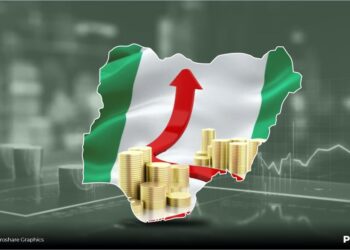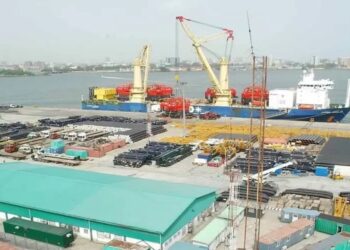On May 29th, 2023, President Bola Ahmed Tinubu was sworn in as the President of the Federal Republic of Nigeria. He inherited an economy that was grappling with high inflation, high interest rates that were stifling businesses, a fuel subsidy regime that was draining government revenues and enriching a cabal, a huge debt profile (both local and international) and a forex regime that was being used as a tool (very effective one) to enrich a few.
These were issues that required to be tackled before the country imploded and the incoming government knew these were issues that needed to be tackled sooner, rather than later. However, the solutions needed to be tackled delicately because contrary to popular belief, governance is like rocket science and every economy is like an engine with multiple moving parts that needed to be aligned properly for it to work effectively. Unfortunately, the government came in gung ho not appreciating that the Nigerian economy is unlike most economies due to the structural defects that make it difficult to predict how a policy will play out.
It is an economy that has a foundation that is now more than ever run by corrupt practices, oil theft, insecurity, arbitrage at all levels of society that makes it near impossible to align its moving parts. It was important that all these are taken into consideration before the policies were enacted so as to ensure that the negative outcomes did not create a slew of new issues that would introduce new moving parts that would need to be realigned. Sadly, the policies were introduced without clearly grasping these issues and the outcomes have created new issues. The initial increase in pump price of fuel was further worsened when the Naira began its free fall after government tried to merge the official and black market rates, given that importers rely on forex to import PMS, as the Naira fell the import price of PMS kept going up resulting in the landing price to reach an all-time high of N617 per litre compared to the N195 in May 2023.
There has continued to be a sense that we can rely on the market to provide the correcting mechanism required to realign the economy. This in my opinion continues to be one of the most misplaced principles that economists continue to proffer. We must understand that the market does not exist in a silo, rather it is a product of politics. The market is largely inhumane, lacking any empathy and until government injects some form of human DNA into it, it will be driven by capitalist tendencies that focus solely on maximizing profits irrespective of the effect on the populace.
Even in the United states where we can argue that the market is ‘King’ the government still plays a pivotal role in guiding the market to achieve societal goals. For Nigeria, that is still on the lower rung of market development, greater government regulation is required so as to ensure that market operators do not take advantage of the cracks within the Nigerian economy.Policies are really about optics and trust that government knows exactly what it is doing and what the policy is meant to achieve. However, while the optics in the dual policies initially seemed positive, there has been a gradual erosion in the trust that government knows what it is doing.
Government needed to clearly articulate its policy and its intended goals and also map out the expected effects, both positive and negative and how it intended to counter the negative outcomes. Prior to introducing both policies it would have been useful for government to consult widely to understand the complexities involved. Policies cannot be made on the pages of newspapers and the social media.Address the issue of oil theft so that government could meet its budget goals of producing an average over 2 million barrels of oil per day rather than the 1.4 million which it currently does. This would help boost our reserves and ease the pressure on the Naira against the dollar. It needed to at least get one refinery up and running so that there will be less reliance on imported refine products which would further reduce the pressure on foreign exchange demands.
While we have ramped up investments in the agricultural sector, the high level of insecurity has negated any gains that could be achieved. Many farmers continue to find it hard to go to farms due to the continued high level of insecurity and fear of banditry in many of the northern states. Government has focused on boosting export crop production so as to increase non-oil export revenues but I argue that the focus should be on increasing production for local consumption, with any surplus then for export. This would ensure food security.Diaspora inflows still have a role to play in the inflow of foreign exchange into the country and there will be a need for government to reorganize the operations of the BDCs so that small inflows can be channeled through them. This will remove their reliance on allocations from the Central Bank and enable small demands to be met through them and help ease the pressure of the Naira. We could have a system whereby the BDCs would be able to receive up to 10,000 dollars leaving larger inflows to go through the traditional financial institutions.
With the NFIU and EFCC, we can still check any illegal inflows. Finally, the government has been singing the song of palliatives but Nigerians have had bad experiences when it comes to palliatives. The National social register that is being touted as providing a foundation for identifying the poor and vulnerable in society is said to have registered 12 million households or 60 million poor Nigerians is still far short of the 133 million Nigerians (which is predicted to rise by 7 million in 2023) that are estimated to be living under conditions of multi-dimensional poverty. This is even assuming that the register is accurate. So the moving parts keep mutating and managing them is the key test for this new government.





